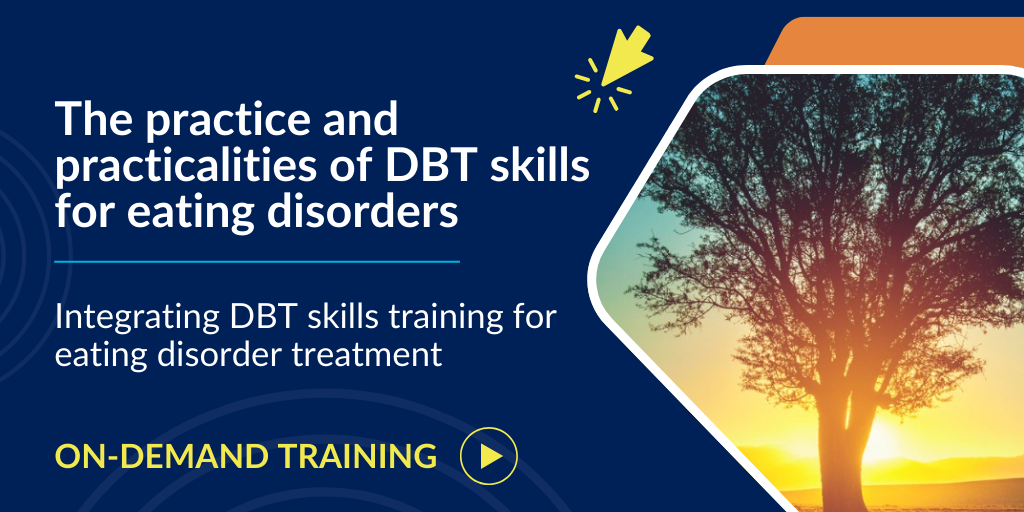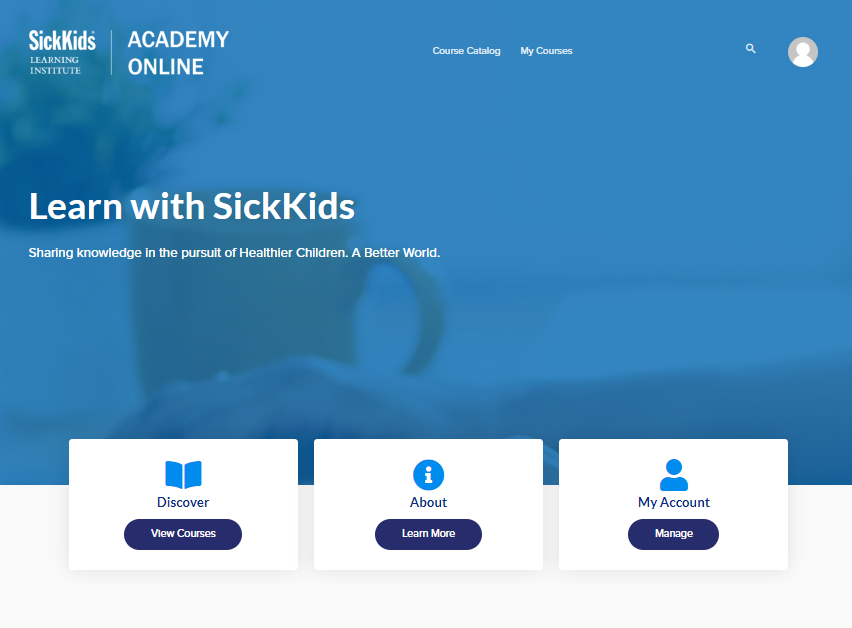The practice and practicalities of DBT skills for eating disorders

Deepen your expertise with practical strategies for adapting DBT skills to address the unique challenges of eating disorder treatment.
This training is suitable for:
- Mental Health Professionals: psychotherapists, counsellors, psychologists, social workers
- Medical Professionals: nurses, psychiatrists, pediatricians, family doctors
- Direct Service Workers: drop-in workers, shelter and hostel workers, child and youth workers, youth justice workers
- Educators: teachers, ECE, school administration, support staff
- First Responders: police, firefighters, paramedics
- Other: This training is helpful for anyone who supports people with eating disorders
Client category: Professionals working with adult clients.
CE hours: 6
The practice and practicalities of DBT skills for eating disorders: Overview
The demand to integrate DBT, either comprehensively or by modality, into eating disorder (ED) care has increased significantly in recent years. One of the most portable aspects of DBT – skills training – has emerged as an important transdiagnostic adjunctive treatment and/or as a stand-alone intervention (e.g., DBT-BED, DBT-BN). Clinical teams across levels of care have been or are preparing to add DBT skills groups into outpatient, day treatment, and residential/inpatient programming.
DBT skills training helps clients to learn, practice and integrate more effective ways of managing emotions, relational difficulties, identity distress, rigid thinking patterns, and behavioral challenges. All skills are taught with the aim of building lives worth living.
DBT skills, however, were not written with eating disorders in mind. In our personal and professional experience, they require nuance and supplementation to deliver them effectively and appropriately to those struggling with EDs. While the fundamental meaning of the skills as described by Linehan (1993, 2015) remain the same
Training description:
This on-demand training provides an in-depth exploration of the four skill modules applied to EDs with a specific focus on medical safety (e.g., modifying TIPP), inclusion of ED-specific sensory and perceptual differences,, and the application to food and weight.
Through role plays and case examples, James and Anita will help participants explore the rationale and importance of DBT skills in ED care, comprehend the difficulties people with EDs may have around skill use, and engage with practical demonstrations of real-life application of skills (e.g., use of skills to interrupt binge/purge cycle, radical acceptance of genetics, skills at meals, suggestions to supplement emotion regulation handouts).
Learning objectives:
- Understand DBT skills and their relevance to eating disorders.
- Identify some of the difficulties experienced by people with eating disorders with respect to learning and using DBT skills.
- Demonstrate how to modify skills around medical stability, meals, interoceptive awareness differences, and body weight).
- Explain how to support skills-building and generalization for patients with eating disorders.
Register today to expand your clinical toolkit and gain practical approaches for integrating DBT skills into eating disorder care with this on-demand training.
Upon registration participants will receive a confirmation email that includes access information to our on-demand training platform, SickKids Academy Online. Participants will have access for 90 days from the date they begin the course on SickKids Academy Online. Following the training, participants are required to complete a quiz to receive the Certificate of Participation.

This program was originally recorded on March 3, 2025.
Updated January 5, 2026



